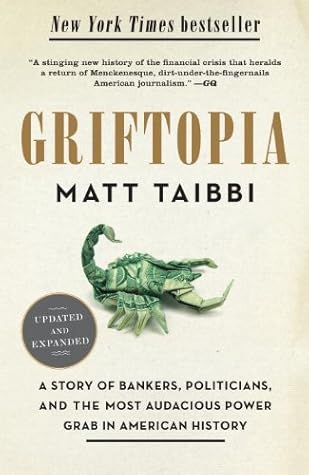More on this book
Community
Kindle Notes & Highlights
by
Matt Taibbi
Read between
January 23 - February 11, 2025
Here’s the big difference between America and the third world: in America, our leaders put on a hell of a show for us voters, while in the third world, the bulk of the population gets squat. In the third world, most people know where they stand and don’t have any illusions about it.
Which is this: none of it really matters to us. The presidential election is a drama that we Americans have learned to wholly consume as entertainment, divorced completely from any expectations about concrete changes in our own lives. For the vast majority of people who follow national elections in this country, the payoff they’re looking for when they campaign for this or that political figure is that warm and fuzzy feeling you get when the home team wins the big game. Or, more important, when a hated rival loses. Their stake in the electoral game isn’t a citizen’s interest, but a rooting
...more
In the new American ghetto, the nightmare engine is bubble economics, a kind of high-tech casino scam that kills neighborhoods just like dope does, only the product is credit, not crack or heroin. It concentrates the money of the population in just a few hands with brutal efficiency, just like narco-business, and just as in narco-business the product itself, debt, steadily demoralizes the customer to the point where he’s unable to prevent himself from being continually dominated.
If American politics made any sense at all, we wouldn’t have two giant political parties of roughly equal size perpetually fighting over the same 5–10 percent swatch of undecided voters, blues versus reds. Instead, the parties should be broken down into haves and have-nots—a couple of obnoxious bankers on the Upper East Side running for office against 280 million pissed-off credit card and mortgage customers.
Our world isn’t about ideology anymore. It’s about complexity. We live in a complex bureaucratic state with complex laws and complex business practices, and the few organizations with the corporate willpower to master these complexities will inevitably own the political power.
Two other things are striking about the mortgage-scam era. One was that nobody in this vast rogues’ gallery of characters was really engaged in building anything. If Wall Street makes its profits by moving money around from place to place and taking a cut here and there, in a sense this whole mess was a kind of giant welfare program the financial services industry simply willed into being for itself. It invented a mountain of money in the form of a few trillion dollars’ worth of bogus mortgages and rolled it forward for a few years, until reality intervened—and suddenly it was announced that
...more
We paid for this instead of a generation of health insurance, or an alternative energy grid, or a brand-new system of roads and highways. With the $13-plus trillion we are estimated to ultimately spend on the bailouts, we could not only have bought and paid off every single subprime mortgage in the country (that would only have cost $1.4 trillion), we could have paid off every remaining mortgage of any kind in this country—and still have had enough money left over to buy a new house for every American who does not already have one. But we didn’t do that, and we didn’t spend the money on
...more
When you have a system with an electorate divided up into two fiercely warring tribes, each determined to blame the country’s problems on the other, it will often be next to impossible to get anyone to even pay attention to a problem that is not the fault of one or the other group. Moreover it is incredibly easy to shift blame for the problem to one of those groups, or to both of them, if you know how to play things right—which happened over and over again in this case.
This story is the ultimate example of America’s biggest political problem. We no longer have the attention span to deal with any twenty-first-century crisis. We live in an economy that is immensely complex and we are completely at the mercy of the small group of people who understand it—who incidentally often happen to be the same people who built these wildly complex economic systems. We have to trust these people to do the right thing, but we can’t, because, well, they’re scum. Which is kind of a big problem, when you think about it.


